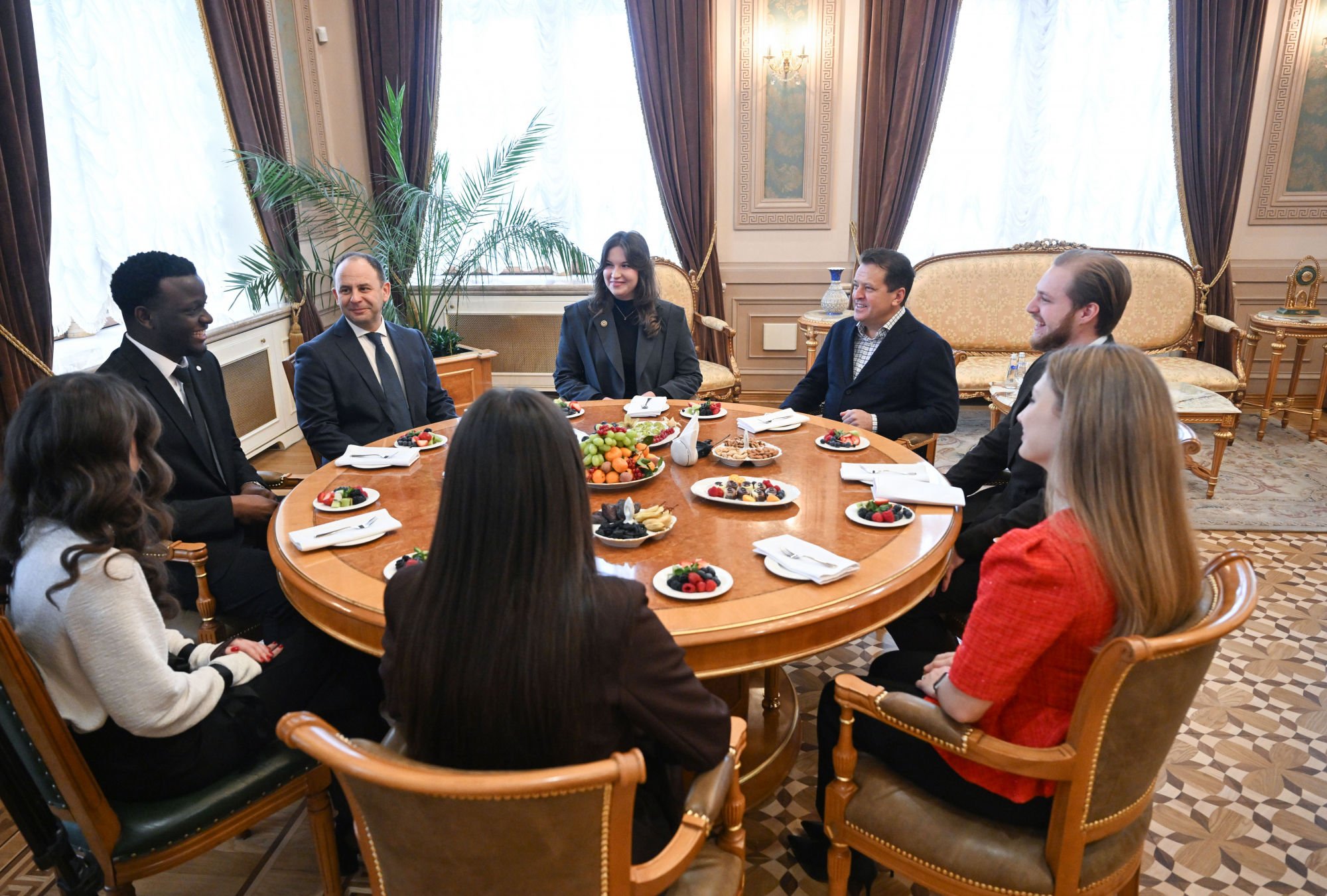(KZN.RU,
October 17). The lecture on “Human capital as a resource for Russia's
development in the medium and long term perspective” by Yaroslav Kuzminov, the
rector of the National Research University “Higher School of Economics’ (HSE),
took place at the House of RT Government. Rustam Minnikhanov, the President of
the Republic of Tatarstan, Ildar Khalikov, the Prime Minister of Tatarstan,
Farid Mukhametshin, the chairman of Tatarstan State Council, Ilsur Metshin, the
Mayor of Kazan, the leadership of the republican ministries and departments
attended the lecture.
Rustam
Minnikhanov thanked Yaroslav Kuzminov for a visit, noting that Tatarstan
actively cooperates with the Higher School of Economics in several areas,
reports the press service of the President of the RT.
According
to Ya. Kuzminov, the problem of finding new sources of the economic growth
exist in Russia for today. As a result, demand on human capital and human
expertise is increased, which often determine the quality of the company in any
industry, especially when natural rent is not the company's income. In
addition, man is the creative part of any economy.
The
lecturer noted that there are three sections of branches that form the human
potential. Education and culture are investing in the quality of human capital
(competence, knowledge and values). “Health, environment and sphere of leisure
work on quantity rather than quality. Relatively speaking, it’s how long we can
hold out in the workplace”, said Ya. Kuzminov. “The third part of the industry
is a pension and social assistance, which create incentives for further work”.
According
to the rector of the Higher School of Economics, Russia today is among the 20%
of the countries with the highest levels of expectancy learning. Australia is a
leader on this indicator. Russia is about on par with such countries as Canada,
Japan, Austria and Poland. “In addition, we are consistently among the top five
leading countries by the level of coverage of the population with tertiary
education. It is tertiary education what forms the core professional
competencies”, he said.
According
to the lecturer, the lack of funding for two main areas – health and education
– is a key issue of human capital reproduction system in Russia, which leads to
a lack of professionalism and professional motivation.
Another
sensitive issue for today is associated with “brain drain” abroad. As Ya.
Kuzminov told, almost half a million different specialists left Russia for the
last 3-4 years. According to the lecturer, it is impossible to approach the
solution of this problem radically, for example by closing of borders. It will
only worsen the situation, and any attempt to limit people will not lead to
anything good, he said. “All we need is a positive incentive. A national
program, in which people display their talents in the profession, business or
social activity, and will be provided start-up grants. It also must give an
opportunity to purchase housing in installments. Such binding elements will
give a definite positive result”, said the rector.
